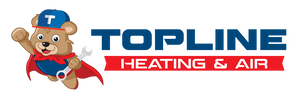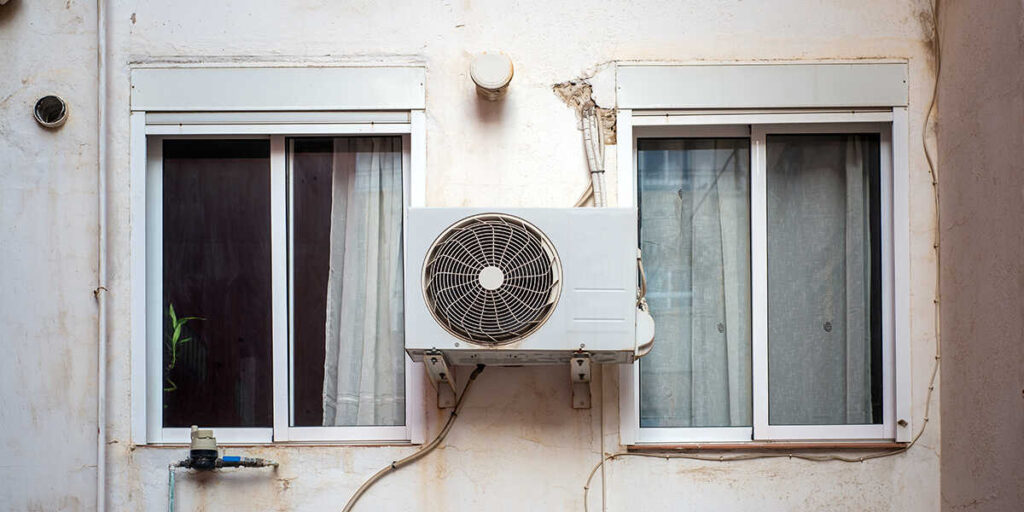Do you need air conditioning or heating services in Honey Brook, PA? Give Topline Heating & Air a call today at 717-628-6825!
In the world of heating, ventilation, and cooling, you’ll find a multitude of common words and phrases that professionals use. Whether it’s to reference an internal part of an air conditioner or to recommend an appliance, it’s essential to know some of this HVAC terminology as a property owner. When you need HVAC services, you’ll have more information to reference and a better understanding of what you might need.
Once you know some of the most basic terms of the HVAC industry, you’ll have more information about your own system and various services. Stay ahead of the game by reading about essential HVAC terminology, like the SEER rating, heat pumps, central air conditioning, and more.
Below, we review some of the top HVAC terms you should know. Topline Heating & Air is a team of heating and air conditioning experts in Honey Brook, PA, and can help you with a wide range of needs.
HVAC Terms and Their Definitions
Air Conditioner
An air conditioner is a type of cooling appliance that provides cool air to a space and takes in hot air. Air conditioners can be window or wall units or central air conditioning.
Air Handler
An air handler is the outdoor portion of a heat pump or air conditioner that pushes air through ductwork, containing the circulating fan and coils.
British Thermal Unit (BTU)
A British Thermal Unit is a unit of measurement that identifies how much heat one needs to lower or raise the temperature by one degree Fahrenheit of a pound of water. A heating system with a high BTU rating has a larger capacity.
Central Air Conditioning
Central air conditioning systems are larger than normal AC units, and they cool an entire property rather than individual rooms. Central air conditioning uses ductwork and fans to transport cool air to various places in a home.
Coils
Coils help control heat transfer and indoor temperature changes. The evaporator coil takes moisture and heat out of the air, while the condenser coil sends the heat outside.
Compressor
A compressor changes an air conditioner or heat pump’s refrigerant into high-pressure gas that cools a space. Some professionals believe it is the heart of an air conditioning system and that it plays the most essential role.
Condenser
The outdoor units of heat pumps and air conditioners house the condenser, a part that takes in or sends away heat. Its job depends on the time of year, and condensers help HVAC systems provide year-round comfort.
Dehumidifiers
Dehumidifiers are appliances that decrease the amount of humidity and moisture in an indoor space, removing water vapor from the air.
Ductwork
Ductwork is the system of ducts (tubing) that acts as the air transportation channel between parts of your HVAC system, such as your air conditioner, heater, etc. Having clean and secure ductwork is essential for a successful HVAC system, but you may have a completely ductless system.
Energy Efficiency Ratio (EER)
One of the most vital pieces of HVAC terminology is the Energy Efficiency Ratio (EER), or the ratio of cooling capabilities to the power or energy input. The higher the EER for an air conditioner, the more energy-efficient and money-saving it will be.
Heat Gain
Heat gain is the added amount of heat to a specific area.
Heat Loss
Heat loss is the subtracted amount of heat from a given area.
Heat Pumps
Heat pumps are a type of HVAC appliance that moves heat around, depending on the season’s needs. In the summer, a heat pump will take the heat out of a home and send it outside, whereas, in winter, it takes heat into a home to provide warmth.
Humidifiers
Humidifiers provide moisture to a property to prevent uncomfortable dryness and come in singular or whole-house systems. They may work directly with your home’s HVAC system or operate alone.
HVAC
Perhaps the most important word in HVAC terminology is HVAC, or Heating, Ventilation, and Air Conditioning.
Programmable Thermostat
Users can set a programmable thermostat on a specific schedule and adjust daily temperatures based on their frequent routines. This is especially helpful for wasting less energy and can help save money. Some programmable thermostats are smart ones or have controls via smart devices.
Refrigerant
Refrigerant is the liquid that compresses and absorbs heat in air conditioners, heat pumps, and refrigerators. Many HVAC professionals often use refrigerant or Freon interchangeably because there are several types of refrigerant, but R-22 was, until recently, the industry standard.
SEER (Seasonal Energy Efficiency Ratio)
The Seasonal Energy Efficiency Ratio of an air conditioning system measures how energy-efficient it is. It divides the cooling output by the inputted energy. If your air conditioner has a high SEER rating, it will save you money and cost less to operate.
Split (Zoned) System
A split system, or ductless system, uses no ductwork to heat and cool various areas of a property. The number of zones and their sizes are customizable and allow for precise temperature controls of multiple spaces simultaneously.
Ventilation
Ventilation is the process of sending air in and out of an indoor space with mechanical methods.
Zoning
A method of dividing a property into controlled zones to provide a more effective heating and cooling system. It can also help address the needs of multiple people and avoid blanket temperatures across the board.
Contact Topline Heating & Air for All Your HVAC Needs in Honey Brook and Lancaster, PA
Now that you know a lot of common HVAC terminology, reach out to the trusted business that can meet all of your needs in one place. From air conditioning maintenance to indoor air quality testing, our team at Topline Heating & Air can help you improve the function and health of your PA home.
If you’re ready to book an HVAC service with Topline Heating & Air, contact one of our two Pennsylvania locations. You can call us in Honey Brook, PA, at 717-628-6825 or Lancaster, PA, at 717-482-1667.



